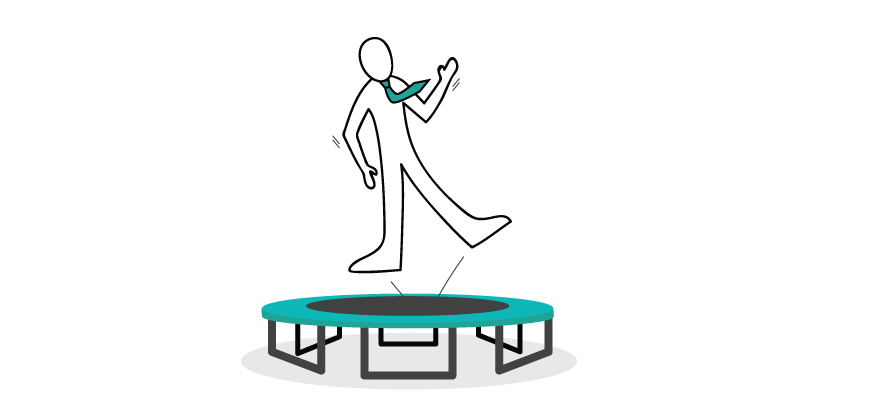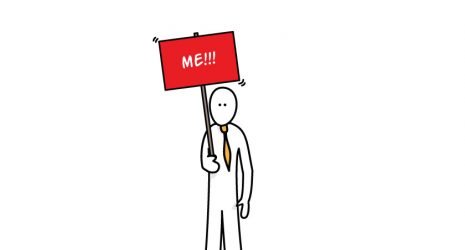How to Bounce Back From Rejection

How to Bounce Back From Rejection
In the publish-or-perish world of academia, having an article rejected can feel like a stab wound. At the beginning of graduate school, I knew that if I wanted to get tenure, I had to be productive. Then my first three papers were rejected by prestigious journals, a leading expert told me my projects were hopeless, and I wondered if I should drop out.
We all get rejected at work, whether it’s having our suggestions shot down, being denied for a promotion or getting fired from a job. It hurts — and it’s not just a metaphor. Neuroscientists have scanned the brains of people who have cruelly been excluded from an online game or looked at a photo of their ex who dumped them. The physiological response looks fairly similar to processing physical pain.
Apparently, this was adaptive in our evolutionary past. If rejection didn’t sting, you might have been perfectly comfortable leaving your tribe, which would not bode well for your survival. But it’s left us wired to overreact to everyday rejections. If you’ve ever given a presentation and felt crushed by the one scowling face in a room full of smiles, you know what I mean.
That’s the bad news. The good news is that we can learn to take rejection in stride. Take salespeople: They get rejected constantly, and psychologists find that the ones who stick with it are the ones who learn not to take it personally.
A good starting point is to remove, “It’s not you, it’s me” from your vocabulary. Sometimes it really is them! But the real reason to ban that phrase is because most of the time when we get rejected, it’s not you. It’s not me either. It’s us.
Rejection often happens because of a lack of fit in the relationship: Your values were a mismatch for that interviewer, your skills didn’t quite suit that job, your ratty conference T-shirts failed to overlap with the taste of your decreasingly significant other. New research reveals that when people are in the habit of blaming setbacks on relationships instead of only on the individuals involved, they’re less likely to give up — and more motivated to get better.
It also helps to recognise that our lives are composed of many selves. Walt Whitman was not alone; you, too, contain multitudes. In one experiment, after people had to pitch themselves for a job in front of two sullen, dismissive evaluators, their salivary cortisol levels — which, among other things, indicate stress — were elevated for the next 45 minutes. But if they had been randomly assigned to write about their most important value, they didn’t show that physiological stress response.
When one of your identities is rejected, resilience comes from turning to another identity that matters to you.
“When you’re insecure in one, you lean on the other one that’s doing better at that time,” filmmaker M. Night Shyamalan said recently on my podcast, WorkLife. “Pliability is the definition of strength.”
When my work got rejected early in my academic career, pliability became my source of strength. My identity as a researcher was under threat, but that wasn’t what had drawn me to graduate school in the first place. I had another, stronger identity: I wanted to be a teacher. Although I was passionate about sharing knowledge and igniting curiosity in students, I hadn’t had a chance: The first two years of my program were supposed to focus entirely on research.
I realised that if I wanted to bounce back from the research rejections, I had to find a way to teach. I convinced an adviser to sign off on independent study projects for a group of students, and I started meeting with them weekly to teach my own little class. The conversations in that unofficial seminar gave rise to my first two major papers, which rejuvenated my motivation and gave me a head start toward tenure.
We are more than the bullet points on our resumes. We are better than the sentences we string together into a word salad under the magnifying glass of an interview. No one is rejecting us. They are rejecting a sample of our work, sometimes only after seeing it through a foggy lens.
Author: Adam Grant – Adam is an organisational psychologist at Wharton, is the author of “Originals.”
Source: https://www.nytimes.com/2019/04/19/smarter-living/how-to-bounce-back-from-rejection.html




